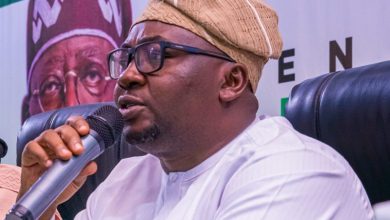FG in Talks with China for $2bn Loan to Build National Super Grid
The Federal Government is in advanced talks with China’s Exim Bank for a $2 billion loan to build a new electricity super grid.
The project aims to boost national transmission and improve power supply to industries.
The Federal Government has entered advanced discussions with China’s Export-Import Bank to secure a $2 billion loan for a new electricity super grid aimed at strengthening Nigeria’s power transmission network.

The planned project is expected to improve the flow of electricity between the eastern and western regions of the country, particularly to industrial zones that consume large volumes of power.
Minister of Power, Adebayo Adelabu, disclosed the development during an economic summit held in Abuja on Monday. He explained that the super grid is part of broader reforms designed to decentralize power generation and attract industrial users who previously disconnected from the national grid due to inconsistent supply.
“It’s part of plans to decentralize power generation and bring back major consumers that left because of unreliable supply,” Adelabu said.
According to government sources cited by Bloomberg, negotiations with China’s Exim Bank are progressing well, and the project has already received approval from the Federal Executive Council.
Nigeria currently has an installed electricity generation capacity of about 13 gigawatts, but less than one-third of that reaches consumers because of frequent system collapses and weak transmission lines. In comparison, South Africa, with a smaller population, has about 70 gigawatts of installed capacity.
The unreliable power situation has forced many companies to depend on diesel generators and other self-generation methods, which now account for nearly half of total energy consumed nationwide.
Adelabu said the new grid would enhance electricity delivery to industrial areas, stimulate manufacturing growth, and reduce dependence on private generation.
Since assuming office in 2023, President Bola Tinubu’s administration has introduced several reforms to attract investment and stabilize the economy. These include the removal of fuel subsidies, restructuring of the tax system, and measures to improve security in oil-producing regions.
The government also approved a review of electricity tariffs for some urban consumers to make the power sector financially sustainable. Adelabu noted that the policy improved revenue collection by distribution companies by about 70 per cent in 2024, with income projected to reach roughly ₦2.4 trillion ($1.6 billion) this year.
Officials say the new super grid, when completed, will be a major step toward achieving reliable power supply for homes, industries, and public infrastructure across Nigeria.



